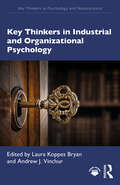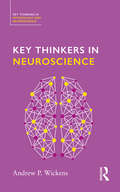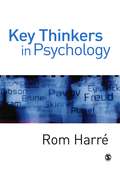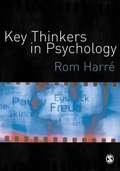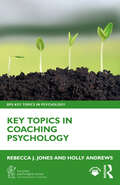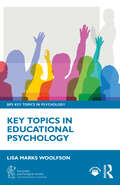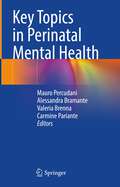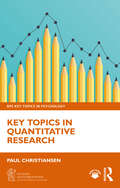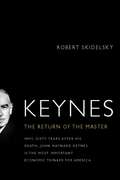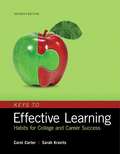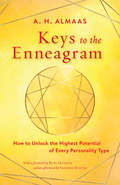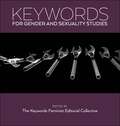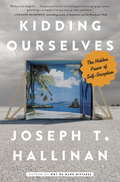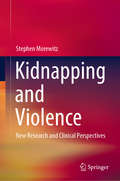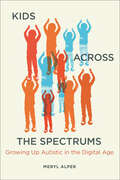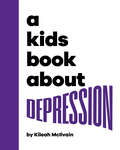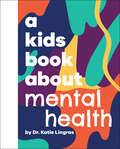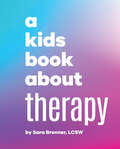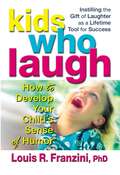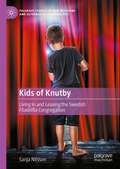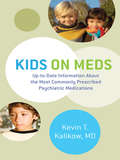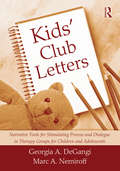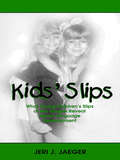- Table View
- List View
Key Thinkers in Industrial and Organizational Psychology (Key Thinkers in Psychology and Neuroscience)
by Andrew J. Vinchur Laura Koppes BryanKey Thinkers in Industrial and Organizational Psychology explores the lives, ideas, contributions, and impact of key figures who have shaped and developed industrial and organizational (I-O) psychology.Through a chronological lens, the book traces the history and context behind the groundbreaking work of a diverse group of individuals who have influenced the field. Among those featured are pioneers such as Walter Dill Scott, Charles S. Myers, Lillian Evelyn Moller Gilbreth, Francizka Baumgarten-Tramer, Chen Li, and Bernard M. Bass. The book offers the reader a comprehensive understanding of the evolving ideas and discoveries that have shaped I-O research and practice over time.This book is an invaluable resource for all scientists and practitioners of I-O psychology and historians of psychology, as well as anyone interested in how psychology has transformed workplaces and influenced organizational practices.
Key Thinkers in Neuroscience
by Andy WickensKey Thinkers in Neuroscience provides insight into the life and work of some of the most significant minds that have shaped the field. Studies of the human brain have been varied and complex, and the field is rich in pioneers whose endeavours have broken new ground in neuroscience. Adopting a chronological and multi-disciplinary approach to each Key Thinker, the book highlights their extraordinary contributions to neuroscience. Beginning with Santiago Ramon y Cajal and finishing with the philosophers Patricia Churchland and Paul Churchland, this book provides a comprehensive look at the new ideas and discoveries that have shaped neuroscientific research and practice, and the people that have been invaluable to this field. This book will be an indispensable companion for all students of neuroscience and the history of psychology, as well as anyone interested in how we have built our knowledge of the brain.
Key Thinkers in Psychology
by Rom Harre`For anyone that has spent years rowing off into convoluted estuaries, and would like an entertaining and useful chart to remind them of River Psychology as a whole, I thoroughly recommend this book′ - The Psychologist `This is a highly enjoyable, erudite and beautifully written manuscript. It conveys a rare depth of understanding and ability to strike at the core debates. The lively style, concentration on the biopic, use of text features such as links between names, and formal division of each sub-section will all appeal.… I have taught History of Psychology for nearly 6 years. This text will prove for more palatable to students than any of the competitors′ - Dr Steve Brown, Loughborough University `This book is well-written. It is clever, flowing and engaging. The balance between biography and contribution is excellent and makes it almost un-put-downable′ - Professor Adrian Furnham, University College London The 20th Century was rich in attempts to characterize and explain psychological phenomena and so to understand the human mind. These projects were undertaken by a huge and diverse list of characters from B F Skinner to James Gibson, from Gordon Allport to Hans Eysenck. It is important for every student of psychology, wherever they might be in the world, to understand the classic scholars, the classic studies, and the subsequent generations of people and ideas that have come to define the broad discipline that is `psychology′. This book achieves this in the most accessible and engaging manner possible. Rom Harré presents a unique textbook orientation, combining the biopic with the significance of the major protagonists of the last century, organized by `schools of thought′, yet with cross-references throughout the text.
Key Thinkers in Psychology
by Rom HarréIt is important for every student of psychology, wherever they might be in the world, to understand the classic scholars, the classic studies, and the subsequent generations of people and ideas that have come to define the broad discipline that is 'psychology'. This book achieves this in the most accessible and engaging manner possible. Rom Harré presents a unique textbook orientation, combining the biopic with the significance of the major protagonists of the last century, organized by 'schools of thought', yet with cross-references throughout the text.
Key Topics in Coaching Psychology (BPS Key Topics in Psychology)
by Holly Andrews Rebecca J. JonesOffering a concise and easy-to-read introduction to the subject, this book deals with key topics in the study of coaching psychology. It explains what coaching psychology is, when and why it is used, and what research can tell us about how and why it works.The book opens with an exploration of the key foundations of coaching psychology, including how it is defined, where it began, and how has it developed. This is followed by an overview of the key theories informing coaching psychology: person-centred theories, goal-setting theory, adult learning theory, and the main theoretical approaches to coaching (behavioural coaching, cognitive behavioural coaching, psychodynamic coaching, and systemic coaching). The authors discuss the key methodologies used in coaching psychology research, covering both quantitative and qualitative approaches, before exploring the impact of coaching psychology on five areas of practice: coaching in the workplace, career coaching, coaching in education, life coaching, and health coaching. Finally, they suggest future directions for the field by examining emerging areas in research and practice.Academically informed, and fully integrating key theories with application in coaching practice, this book gives readers a comprehensive yet accessible understanding of coaching psychology. Key Topics in Coaching Psychology is the ideal resource for undergraduate and postgraduate students of coaching psychology and occupational psychology, business, and leadership, as well as anyone with an interest in learning more about coaching psychology.
Key Topics in Educational Psychology (BPS Key Topics in Psychology)
by Lisa Marks WoolfsonWritten by an experienced academic and practitioner, this book offers a clear and accessible introduction to educational psychology.The book begins by exploring the history of educational psychology, highlighting key figures in its development and the complex and changing relationship between education and psychology. It examines important theories in the field and provides a discussion of the different methodologies researchers use. Importantly, the book goes on to highlight key impacts of the research on current practice and policy, as well as suggesting emerging areas and future directions for the field. In so doing, it offers a self-contained and easily digestible primer for those studying educational psychology and related disciplines.Key Topics in Educational Psychology is a must-read for undergraduate and postgraduate students of educational psychology, psychology of education, education, and educational studies. It will also be of interest to practitioners in training, particularly those who work in educational settings, including educational psychologists, teachers, therapists, and social workers.
Key Topics in Perinatal Mental Health
by Mauro Percudani Alessandra Bramante Valeria Brenna Carmine ParianteThe book offers a comprehensive and up-to-date overview of key issues in perinatal mental health. Classic topics such as screening, assessment, pharmacological, psychological and psychosocial interventions of the most common conditions (depression, anxiety disorders, etc.) are combined with lesser known issues, such as mother-infant relationship disorders or thoughts of infant-related harm and aggressive behaviors, sleep disturbances in puerperium, obsessional disorders, fetal death etc., paying particular attention to specific groups of perinatal patients like mothers with cancer, adolescents, fathers, migrants, and preterm babies. The chapters written by health professionals working in hospitals, community services or voluntary agencies alternate with contributions from researchers whose fields of expertise include biology and neuroscience, diagnosis and special needs, treatment and prognosis, etc., striking a balance between scientific investigation and clinical practice.The book offers a valuable tool for a wide range of professionals like psychiatrists, psychologists, gynecologists, midwives, oncologists, pediatricians, and social workers, who want to improve their clinical practice and the effectiveness of their treatment pathways using evidence from perinatal health research.
Key Topics in Quantitative Research (BPS Key Topics in Psychology)
by Paul ChristiansenThis book gives an overview of the key topics in quantitative methods. Written by an academic who has specialised in quantitative methods in Psychology across a range of sub disciplines, it highlights how crucial understanding quantitative methods is to understanding research in psychology and beyond.First, it briefly considers the history of quantitative methods in psychology citing some key figures in both psychology and statistics. Following this it will describe how we apply models of scientific investigation to psychology to generate reliable knowledge. It will then go on to consider key models we use in quantitative research, from experimental designs to quasi-experimental and correlational designs. Next it introduces sampling theory, and its role in understanding who our findings apply to. The final theoretical consideration is a concise description of null hypothesis significance testing and how we can use it to make inferences about psychological phenomena. In the next part of the book there will be a focus on some core methods. Starting with a discussion of we sample participants before exploring statistics in detail. Next, the book looks at how robust quantitative research can impact other fields and policy through improving ecological validity and reliability. Finally, the book gets to grips with key challenges in the future of quantitative research with a discussion of the replication crisis and solutions to it and then exploring how we can improve inclusivity. This book is an essential text for all students of quantitative methodology.
Keynes
by Robert SkidelskyThe ideas of John Maynard Keynes have never been more timely. No one has bettered Keynes's description of the psychology of investors during a financial crisis: OCyThe practice of calmness and immobility, of certainty and security, suddenly breaks down. New fears and hopes will, without warning, take charge of human conductOC the market will be subject to waves of optimistic and pessimistic sentiment. ' Keynes's preeminent biographer, Robert Skidelsky, Emeritus Professor of Political Economy at the University of Warwick, brilliantly synthesizes from Keynes's career and life the aspects of his thinking that apply most directly to the world we currently live in. In so doing, Skidelsky shows that Keynes's mixture of pragmatism and realism OCo which distinguished his thinking from the neo-classical or Chicago school of economics that has been the dominant influence since the Thatcher-Reagan era and which made possible the raw market capitalism that created the current global financial crisis OCo is more pertinent and applicable than ever. Crucially Keynes offers nervous capitalists OCo and Keynes never wavered in his belief in the capitalist system OCo a positive answer to the question we now face: When unbridled capitalism falters, is there an alternative? In the long run, as Keynes famously said, we are all dead. We may not have time to wait for the perfect theoretical operation of capital as the neo-classicists insist will happen eventually. In the meantime, we have Keynes: more supple, more human and more magnificently real than ever.
Keys to Effective Learning: Habits for College and Career Success
by Carol Carter; Sarah Lyman KravitsKeys to Effective Learning nurtures these skills in students entering college by focusing on building accountability, teamwork, and critical/creative thinking skills that can be applied to any academic or workplace setting.
Keys to the Enneagram: How to Unlock the Highest Potential of Every Personality Type
by A. H. AlmaasMore than just a tool to diagnose your personality type, the Enneagram was originally developed to help people find the ultimate freedom of consciousness and achieve spiritual liberation. A. H. Almaas brings us back to this original mission as he shares the essential keys that will help readers break free from the limitations and distortions of each type&’s fixation—and to express their true spiritual nature in everyday life.
Keywords for Gender and Sexuality Studies (Keywords #13)
by Mishuana Goeman Aimee Bahng Kyla Wazana Tompkins Amber Jamilla Musser Aren Z. Aizura Karma R. ChávezIntroduces key terms, debates, and histories for feminist studies in gender and sexualityKeywords for Gender and Sexuality Studies introduces readers to a set of terms that will aid them in understanding the central methodological and political stakes currently energizing feminist and queer studies. The volume deepens the analyses of this field by highlighting justice-oriented intersectional movements and foregrounding Black, Indigenous, and women of color feminisms; transnational feminisms; queer of color critique; trans, disability, and fat studies; feminist science studies; and critiques of the state, law, and prisons that emerge from queer and women of color justice movements. Many of the keywords featured in this publication call attention to the fundamental assumptions of humanism’s political and intellectual debates—from the racialized contours of property and ownership to eugenicist discourses of improvement and development. Interventions to these frameworks arise out of queer, feminist and anti-racist engagements with matter and ecology as well as efforts to imagine forms of relationality beyond settler colonial and imperialist epistemologiesReflecting the interdisciplinary breadth of the field, this collection of seventy essays by scholars across the social sciences and the humanities weaves together methodologies from science and technology studies, affect theory, and queer historiographies, as well as Black Studies, Latinx Studies, Asian American, and Indigenous Studies. Taken together, these essays move alongside the distinct histories and myriad solidarities of the fields to construct the much awaited Keywords for Gender and Sexuality Studies.
Kidding Ourselves
by Joseph T. HallinanFrom the Pulitzer Prize-winning journalist and author of Why We Make Mistakes, an illuminating exploration of human beings' astonishing ability to deceive themselves. To one degree or another, we all misjudge reality. Our perception--of ourselves and the world around us--is much more malleable than we realize. This self-deception influences every major aspect of our personal and social life, including relationships, sex, politics, careers, and health. In Kidding Ourselves, Joseph Hallinan offers a nuts-and-bolts look at how this penchant shapes our everyday lives, from the medicines we take to the decisions we make. It shows, for instance, just how much the power of many modern medicines, particularly anti-depressants and painkillers, is largely in our heads. Placebos in modern-day life extend beyond hospitals, to fake thermostats and "elevator close" buttons that don't really work...but give the perception that they do. Kidding Ourselves brings together a variety of subjects, linking seemingly unrelated ideas in fascinating and unexpected ways. And ultimately, it shows that deceiving ourselves is not always negative or foolish. As increasing numbers of researchers are discovering, it can be incredibly useful, providing us with the resilience we need to persevere, in the boardroom, bedroom, and beyond. Provocative, accessible, and easily applicable to multiple facets of everyday life, Kidding Ourselves is an extraordinary new exploration of our mind's flexibility.
Kidnapping and Violence: New Research and Clinical Perspectives
by Stephen MorewitzThis book analyzes kidnapping in various forms and from various perspectives. First it argues that kidnapping, including the threat of kidnapping, reflects a breakdown in the mechanisms of social control in society. This volume also discusses the ways governments and para-military and terrorist groups employ kidnappings as part of their foreign and domestic policy. This analysis evaluates why and under what conditions governments, para-military and terrorist groups decide to abduct individuals and groups. It emphasizes how individuals, groups, and governments employ abductions to achieve their psychological, social, religious, and political objectives. This analysis also examines the ways in which cultural traditions in different societies emerge to foster behaviors such as bride abductions. Moreover, this book addresses the extent to which social change modifies these cultural patterns.Suitable for students and researchers, mental health practitioners, and law enforcement, this volume is a unique analysis of our contemporary understanding of kidnapping and violence, and the social, psychological, political, and cultural motivations for such an act.
Kids Across the Spectrums: Growing Up Autistic in the Digital Age
by Meryl AlperAn ethnographic study of diverse children on the autism spectrum and the role of media and technology in their everyday lives.In spite of widespread assumptions that young people on the autism spectrum have a &“natural&” attraction to technology—a premise that leads to significant speculation about how media helps or harms them—relatively little research actually exists about their everyday tech use. In Kids Across the Spectrums, Meryl Alper fills this gap with the first book-length ethnography of the digital lives of autistic young people. Based on research with more than sixty neurodivergent children from an array of racial, ethnic, and socioeconomic backgrounds, Kids Across the Spectrums delves into three overlapping areas of their media usage: cultural belonging, social relationships, and physical embodiment. Alper&’s work demonstrates that what autistic youth do with technology is not radically different from their non-autistic peers. However, significant social and health inequalities—including limited recreational programs, unsafe neighborhoods, and challenges obtaining appropriate therapeutic services—spill over into their media habits. With an emphasis on what autistic children bring to media as opposed to what they supposedly lack socially, Alper argues that their relationships do not exist outside of how communication technologies affect sociality, nor beyond the boundaries of stigmatization and society writ large. Finally, she offers practical suggestions for the education, healthcare, and technology sectors to promote equity, inclusion, access, and justice for autistic kids at home, at school, and in their communities.
Kids Book About Depression, A (A Kids Book)
by Kileah McilvainA personal story of depression and how the author found help.This is a book about depression. It doesn't shy away from the complexities of depression or what getting help might look like. It gives an honest perspective into what depression feels like, what life looks like with it, and the hope that comes with being known and being loved through it.
Kids Book About Mental Health, A (A Kids Book)
by Katie LingrasIt's important that we all learn to care for and promote our mental health!What is mental health? Did you know it's something we all have? It's true! A person's mental health simply means how they understand their own thoughts, feelings, actions, and interactions with others. Sometimes our mental health is positive, and other times it's not. Learning we all have mental health reminds us that we aren't alone. We're so grateful you're here!
Kids Book About Therapy, A (A Kids Book)
by Sara BrennerTherapy is for everyone, and it's never too early (or too late) to start.Therapy isn't just for problems or when something goes wrong. It's for your everyday mental health and is something you can tap into for well-being now and for the rest of your life. This book shows kids mental health therapy can be fun and helps underline its necessity.
Kids Who Laugh
by Louis R. FranziniWhile some children are born with an innate sense of humor, for most kids, humor is a learned behavior. Kids Who Laugh is the first book to examine the psychology of humor in children and explore the many benefits that this characteristic has to offer, including self-confidence, coping skills, creativity, self-control, and more. Most important, it offers the actual tools that parents can use to give their child the gift of laughter.
Kids of Knutby: Living in and Leaving the Swedish Filadelfia Congregation (Palgrave Studies in New Religions and Alternative Spiritualities)
by Sanja NilssonThis book tells the story of the children and youth of the charismatic new religious commune Knutby Filadelfia in Sweden. It recounts the history of the congregation, which started out as a part of the Swedish Pentecostalmovement in 1921. In the 1990s, it developed into a new religion, when the congregation’s female pastor embraced the role of the Bride of Christ. The congregation became widely known in 2004 when one of its members was murdered by another member, the latter claiming to have been acting on orders from God. In 2018, the congregation dissolved after a few years of internal crisis.Sanja Nilsson provides rich empirical analysis of archival material and interviews with the congregation’s children and youth. The young informants’ personal perspectives on their own childhoods encompass narratives from their time inside the congregation, when they identified as members of a stigmatizedminority religion, as well as from the time after the dissolution of the group, when they identified asdefectors from what they came to view as a sectarian milieu.This work offers a comprehensive insight into the Knutby Filadelfia congregation, a group, that although notoriously charted by the media, has been hitherto unexplored by academics. It adds to the growing field of studies concerned with childhoods within new religions and expounds the dynamics of the defection process from the rarely applied perspective of children and youth themselves.
Kids on Meds: Up-to-Date Information About the Most Commonly Prescribed Psychiatric Medications
by Kevin T. KalikowA popular guide for consumers about all the psychiatric drugs used with kids. Arguments abound about whether psychiatric medicines are over- or underprescribed, even as their use in childhood and adolescence has become commonplace. Knowing how various medicines work, their side effects and doses, will help parents understand their child's experience. And if you are considering medication for your child, the crucial question is, could it help? This book is an overview of the four groups of medicines most commonly used in child and adolescent psychiatry--for ADHD, depression and anxiety, psychosis, and mood disorders. It discusses not only the drugs but also how they work in the body, as well as the culture of today's medical practice. Kevin T. Kalikow offers measured advice on how to evaluate and treat young people with medicine and how to decide if medicine isn't the right course of action. It is essential reading for anyone who needs to wade through the complicated--and often contradictory--medical information about kids and drugs.
Kids' Club Letters: Narrative Tools for Stimulating Process and Dialogue in Therapy Groups for Children and Adolescents
by Georgia A. DeGangi Marc A. NemiroffKids' Club Letters provides an innovative approach to group psychotherapy for school-aged children who experience a range of social and emotional problems. A narrative therapy approach is adapted, taking the form of letters written by the therapist in the voice of a child who is asking for advice about interpersonal or emotional problems. The child in the letter is asking for guidance from the participants in the group. These letters were devised and written for the purpose of structuring responses in group psychotherapy, allowing the participants to address relevant issues for them individually and at the group level. The children in the groups had previously experienced difficulty discussing these issues spontaneously. Hence the 'Dear Group' letter format was born. The children did not know that the therapist had written the letters.
Kids' Skills: Playful and Practical Solution-finding with Children
by Ben FurmanWorking with children to convert problems into skills. Well-known Finnish psychotherapist and TV presenter, Ben Furman, shares the Kids' Skills model for working with children that is influencing parents, teachers, counsellors and policy makers around the world. This is a playful and practical approach to solving difficulties faced by children where practically all problems can be seen as skills that need to be developed. This method invites children to become active participants in skill-building and solution-finding. A book buzzing with ideas, stories and suggestions. - Converting problems into skills. - Agreeing on the skill to learn - Naming the skill and choosing a power creature - Gathering supporters and building confidence - Planning the celebration and going public - Practising the skill and creating reminders
Kids' Slips: What Young Children's Slips of the Tongue Reveal About Language Development
by Jeri J. JaegerThe study of speech errors, or "slips of the tongue," is a time-honored methodology which serves as a window to the representation and processing of language and has proven to be the most reliable source of data for building theories of speech production planning. However, until Kids' Slips, there has never been a corpus of such errors from children with which to work. This is the first developmental linguistics research volume to document how online processing is revealed in young children, ages 18 months through 5 years, through their slips of the tongue. Thus, this text provides a new methodology and data source, which will greatly expand our ability to uncover the details of early language development. Professor Jaeger's groundbreaking book incorporates both details of her methodology and findings with implications for different aspects of language development, including phonetics and phonology, the lexicon, semantics, morphology, and syntax. While all the child data is included in the book, a Web site hosted by the author provides readers with the adult data as well. Kids' Slips targets those who study language development in linguistics, developmental psychology, and speech and hearing, as well as those who study language representation and processing more generally in the same disciplines.
Kids, Drugs, And Alcohol: A Parent's Guide to Prevention and Intervention
by Anne Swany Harrity Ann Brey ChristensonThe quotation is taken from the book; “This guide proposes to help fill the gap in preventive education. It does not presume to be a do-it-yourself drug/alcohol manual. Rather, it is designed to acquaint parents with the scope of the issue, target specific social problems (such as keg parties), provide basic information about some of the drugs most commonly used and abused by teenagers and offer practical suggestions for prevention, early detection and intervention. If, after reading this book, you feel that your teenager might have a serious problem, GET HELP! Your family doctor or pediatrician is an excellent place to start. Some potential sources of help are listed in the Appendix.
